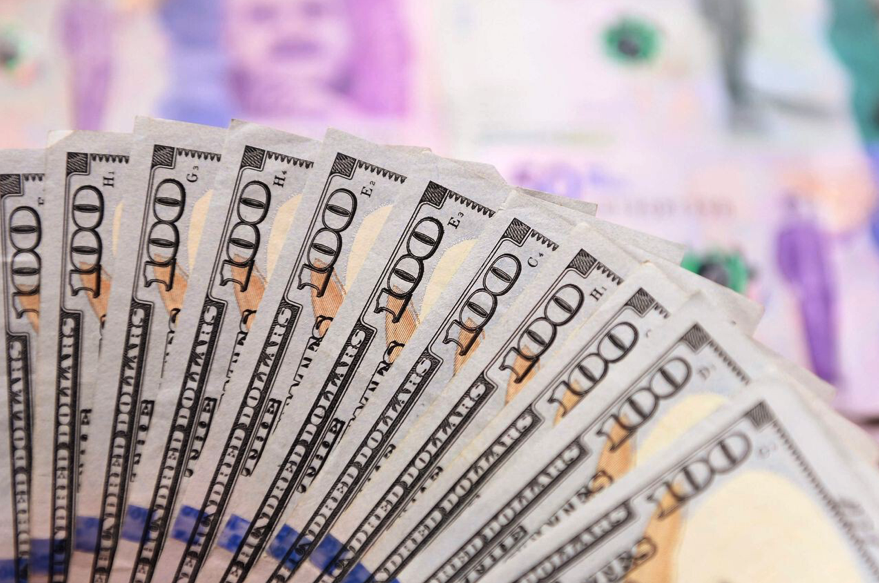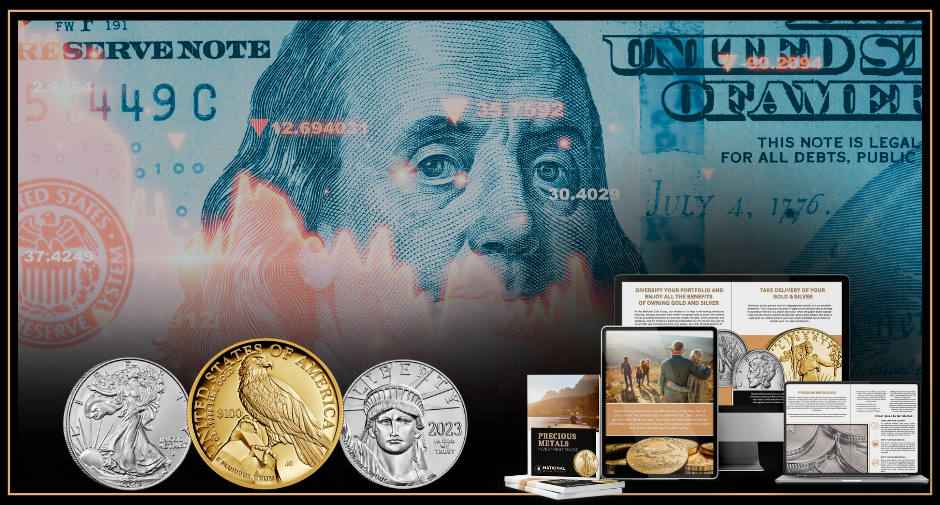The bottom is in for gold - World War 3 is already here & a global economic collapse will pave way for CBDCs - Gerald Celente

(Kitco News) - Despite its stagnant performance in 2022, the bottom for gold is in, according to Gerald Celente, Publisher of The Trends Journal, whose 40-year forecasting record includes correctly predicting the 1987 stock market crash, the DotCom bubble, and high inflation in 2022.
"I would say $1,800 is a pretty good bottom for gold," he told Michelle Makori, Lead Anchor and Editor-in-Chief at Kitco News. "$1,800 or $1,750 absolutely… this could be the year when gold really takes off to a much higher extent, well over $2,000. It can even go into the $2,500 levels."
Gold is up 4.4 percent year-to-date, and is currently trading near $1,910 per ounce.
Celente's optimistic prognosis for gold is due to his grim macroeconomic outlook, as well as gold's role as a hedge against financial instability. He claimed that 2023 would witness a "market meltdown," and suggested that the U.S. government would use war to distract its citizens from the harsh economic reality.
"This is very important… we're talking about a market meltdown [in 2023]," said Celente. "The only thing that's keeping the markets up are interest rates. They go high, and the market goes down. When all else fails, they take you to war."
He added, suggesting gold's role as a geopolitical risk hedge, that "if the current events, that are forming future trends, continue to escalate into war in Ukraine and the Middle East, then gold goes through the roof."
Indeed, Celente plainly stated that World War III is here due to the global nature of the Russia-Ukraine conflict.
World War III
"This is not a proxy war," said Celente, commenting on the ongoing Russia-Ukraine conflict. "America is at war with Russia. They're sending in [American] troops, to train them [Ukrainians] to use the weapons that we're giving them."
In November of 2022, the Pentagon confirmed that active U.S. troops are in fact on the ground in Ukraine to "assess weapon stocks" and provide training. Celente suggested that this could escalate into a hot war between the U.S. and Russia.
"This is called mission creep," said Celente. "They are already pumping [fears] of a nuclear bomb."
He suggested that a "nuclear exchange" is likely as tensions rise between NATO and the BRICS countries.
"The war is going to continue to escalate unless we talk about peace," he said. "I am saying it could escalate into it [a nuclear war]."
Global Economic Woes
Fears heightened last year of a crisis in emerging-market debt, much of it denominated in dollars, as the U.S. dollar gained in value against other currencies. Celente forecasts that emerging markets will face debt crises this year as the global economy collapses.
"Emerging markets are submerging really deeply," he observed. "They have all this debt, a lot of it is dollar-based, and the dollar is still much stronger than it was before."
The U.S. dollar index (DXY) is up 6.95 percent from last year.
Celente, using the example of commercial real estate, also pointed to the damage from COVID lockdowns.
"You're looking at office occupancy rates… at best it's 50 percent of what it was before the COVID war," he said. "All of the businesses that depended on commuters are going out of businesses."
He said that landlords who own office real estate would struggle to pay their mortgages, as occupancy rates go down and interest rates rise.
Celente suggested that the damage done by COVID lockdowns was incalculable, and that stock markets do not reflect these deeper economic trends.
"Kids are going out of their minds from what happened with the lockdowns," he claimed. "You have drug dealers and crime [going up], one thing after another. The economic situation is only artificially being covered up by the markets… people are taking second jobs and third jobs that pay very low wages because 63 percent of Americans are living paycheck-to-paycheck."
CBDCs
As the global economy worsens, governments worldwide will have an excuse to roll out Central Bank Digital Currencies (CBDCs), programmable digital tokens controlled by a central bank, said Celente.
"They're going to use this as an excuse to come up with a new currency," he said. "They [governments] have all this debt and they've got to wash it out with a new currency."
He stressed that he was particularly worried about CBDCs' potential to track peoples' spending and increase their tax burdens.
"With a digital currency, they know every penny that you spend, where you spent it, and what you spent it on," he observed. "They'll have more control over you but most importantly, they'll get every penny from you in tax dollars."



